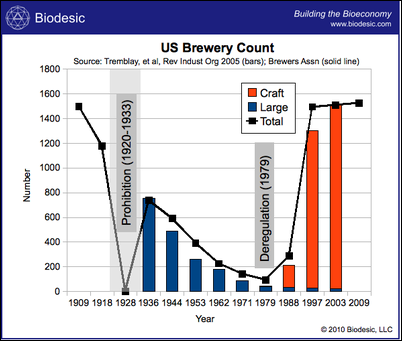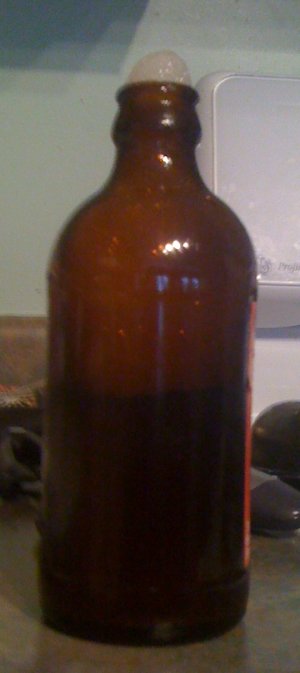Michael Pinkus updates us on a hopeful sign that we may soon see the end of one of Canada’s surviving Prohibition-era laws:
Almost two years ago I published in these very pages an interview I did with Ian Blue, a lawyer who had turned his focus to liquor laws, constitutional issues and even more importantly, the Importation of Intoxicating Liquors Act (IILA). Now, many think the law was struck down but in fact there was just an amendment made to the federal law that now allows you to carry a certain amount of booze for personal use across provincial borders without fear of being charged by your provincial liquor board. So why am I bringing up this “ancient history” — well it seems the constitutional challenge that Ian was hoping for has finally got a name and a voice in the form of Vin de Garde wine club, and the challenge is going forward — before you blindly blow this off as another soon-to-be failed attempt to challenge the power and might of the LCBO I suggest we revisit the interview, the article and the issues that surround it; there seems to be more relevance here than ever before. This is going to get very interesting.
Have you ever been out to British Columbia and brought back a couple of bottles of wine? Better yet, have you ever driven across the border to Quebec and brought back a case of beer? If you have done either of these things then you my friend are a felon, capital F-E-L-O-N. That’s all according to the Importation of Intoxicating Liquors Act (IILA) of 1928, which is still on the books and very much in use by our liquor board (the LCBO). What it boils down to is, you can travel to Cuba and bring back 2 bottles of rum, go stateside and return with two bottles of wine, go to Mexico and carry back 4 cervesas; but you can’t cross Canadian provincial borders carrying any booze back with you. So, who’s ready to turn themselves in?
Not so fast says lawyer Ian Blue, who has been looking into the matter for us. Ian is an energy lawyer who found himself in a conversation with fellow lawyer, Arnold Schwisberg, about the IILA and like an ear-worm (a song that won’t leave your head) Ian couldn’t stop thinking about the absurdity of the Act. “The constitutional issues around inter-provincial and international sales of energy have equipped me admirably to look at the IILA … it stuck with me until I wrote my paper on the subject ‘On the Rocks’.” Ian subsequently wrote a second article on the same topic (On the Rocks; The Gold Seal Case: A Surprising Second Look); both appear in Advocate Quarterly.
[. . .]
“Liquor boards would continue to exist, their power would just be diminished,” but they would definitely put up a fight, “You’re fighting entrenched interests, so if you’re diminishing their power they’re going to fight to try and keep it.”
How big a fight? “I would be fighting 10 sets of lawyers one each from every attorney general’s department; probably 10 sets of lawyers from the provincial liquor commission; and probably lawyers from the police associations,” estimates Ian, but that’s just the tip of the iceberg. “What [a win] would mean is that if I wanted to have a private liquor store I could set one up and I could buy directly from the wineries in Niagara or British Columbia or foreign countries. Nova Scotia restaurants could order wines from Ontario. It would just loosen up the system. [It] doesn’t mean licentiousness; the province could still legislate standards for people who work in liquor stores, store hours, security, all safe drinking training, all that stuff; it’s just that you would not need to have liquor and wine sold through publicly funded liquor stores; being sold to you by unionized staff on defined benefit pension plans.”
But what about those who claim a loss of provincial revenue as their argument for keeping the liquor boards as is? According to winelaw.ca, “The Provincial Governments make their money regardless of whether the sale is made in a government store or a private store. In fact, the revenue that government makes from liquor on a per capita basis for 2007/2008 was as follows: $192 for BC [a mix of private and government stores], $190 for Alberta [all private stores], and $139 for Ontario.”


 I’m always on the lookout for interesting beers (I’m very much into wine, but now and again a beer is the right beverage). I picked up a six-pack of “Sgt. Major India Pale Ale” from the Scotch Irish Brewing company on Friday. They’ve been in the fridge since then. I decided to open one earlier this afternoon, only to discover that the Sgt. Major is an excitable type.
I’m always on the lookout for interesting beers (I’m very much into wine, but now and again a beer is the right beverage). I picked up a six-pack of “Sgt. Major India Pale Ale” from the Scotch Irish Brewing company on Friday. They’ve been in the fridge since then. I decided to open one earlier this afternoon, only to discover that the Sgt. Major is an excitable type. 

